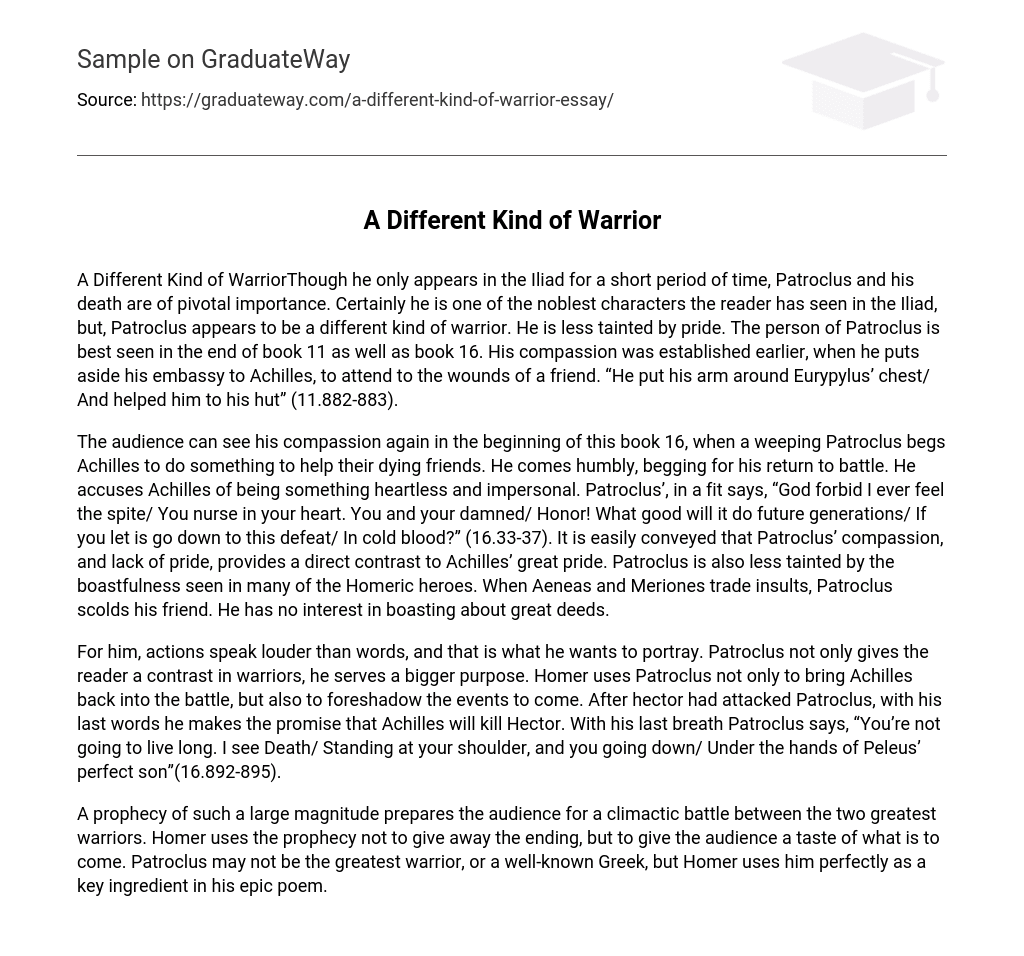A Different Kind of WarriorThough he only appears in the Iliad for a short period of time, Patroclus and his death are of pivotal importance. Certainly he is one of the noblest characters the reader has seen in the Iliad, but, Patroclus appears to be a different kind of warrior. He is less tainted by pride. The person of Patroclus is best seen in the end of book 11 as well as book 16. His compassion was established earlier, when he puts aside his embassy to Achilles, to attend to the wounds of a friend. “He put his arm around Eurypylus’ chest/ And helped him to his hut” (11.882-883).
The audience can see his compassion again in the beginning of this book 16, when a weeping Patroclus begs Achilles to do something to help their dying friends. He comes humbly, begging for his return to battle. He accuses Achilles of being something heartless and impersonal. Patroclus’, in a fit says, “God forbid I ever feel the spite/ You nurse in your heart. You and your damned/ Honor! What good will it do future generations/ If you let is go down to this defeat/ In cold blood?” (16.33-37). It is easily conveyed that Patroclus’ compassion, and lack of pride, provides a direct contrast to Achilles’ great pride. Patroclus is also less tainted by the boastfulness seen in many of the Homeric heroes. When Aeneas and Meriones trade insults, Patroclus scolds his friend. He has no interest in boasting about great deeds.
For him, actions speak louder than words, and that is what he wants to portray. Patroclus not only gives the reader a contrast in warriors, he serves a bigger purpose. Homer uses Patroclus not only to bring Achilles back into the battle, but also to foreshadow the events to come. After hector had attacked Patroclus, with his last words he makes the promise that Achilles will kill Hector. With his last breath Patroclus says, “You’re not going to live long. I see Death/ Standing at your shoulder, and you going down/ Under the hands of Peleus’ perfect son”(16.892-895).
A prophecy of such a large magnitude prepares the audience for a climactic battle between the two greatest warriors. Homer uses the prophecy not to give away the ending, but to give the audience a taste of what is to come. Patroclus may not be the greatest warrior, or a well-known Greek, but Homer uses him perfectly as a key ingredient in his epic poem.





